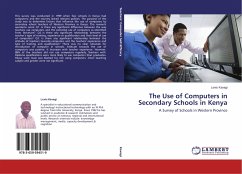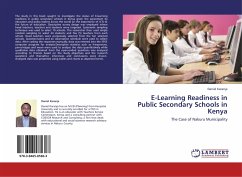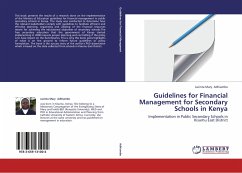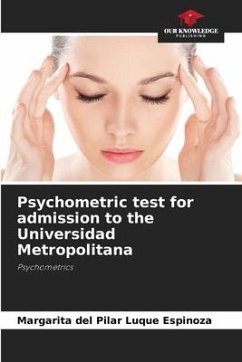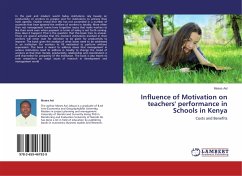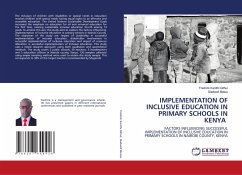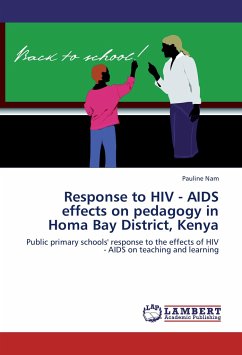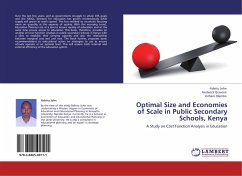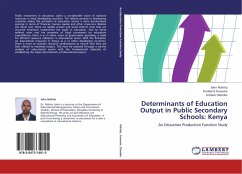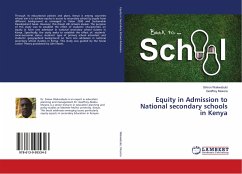
Equity in Admission to National secondary schools in Kenya
Versandkostenfrei!
Versandfertig in 6-10 Tagen
41,99 €
inkl. MwSt.

PAYBACK Punkte
21 °P sammeln!
Through its educational policies and plans, Kenya is among countries whose aim is to achieve equity in access to secondary school by pupils from different background as envisaged in Vision 2030 and Sustainable Development Goals. However, this dream still remains elusive. The purpose of this study was to establish the effect of students' characteristic on equity in form one admission in national secondary school clusters in Kenya. Specifically, the study seeks to establish the effect of: students' socio-economic status; students' type of primary school attended; and students' geographical backg...
Through its educational policies and plans, Kenya is among countries whose aim is to achieve equity in access to secondary school by pupils from different background as envisaged in Vision 2030 and Sustainable Development Goals. However, this dream still remains elusive. The purpose of this study was to establish the effect of students' characteristic on equity in form one admission in national secondary school clusters in Kenya. Specifically, the study seeks to establish the effect of: students' socio-economic status; students' type of primary school attended; and students' geographical background on form one admission in national secondary school clusters in Kenya. This study was guided by the Social Justice Theory postulated by John Rawls.




